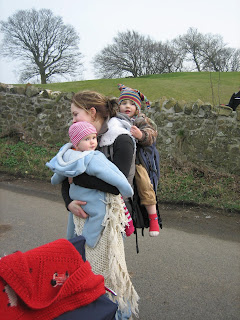
But this is not the end. (If you've been counting, you're surely missing three more moves.) After "enduring" about eight years of living in Wagrain, I felt the urge to leave again - this time on my own. So, when I was only 14, I decided (as fas as one is in the position to decide anything at this age) to drop out of my current school and moved to London. I won't go into further detail here on what I particularly liked about London because one of my earlier posts deals with this beautiful city. Here are a couple of photos for you:


Over the years, my interests have changed a little and I'm not as much into horses as I used to be (come on girls, we all were!) but I still feel the urge to leave home every now and then.
Along with my liking of "adventurous" trips, I do have another character trait (not as amiable as fluffy ponies) that comes into play here. I have a rather short attention span - in every aspect. And with short i mean very short. I doesn't matter if it's books, films, music or anything else. Sometimes I cannot even mangage to listen to one song all the way through (those are a tough three minutes!!) and it's the same with books. With certain books I get so annoyed that I skip the "last" 2/3rds and read the last couple of pages instead. Not as time consuming as reading every single page.
Sadly, this also holds true for people. I'm a real people person. I always need people around me - as many different people as possible. Though I live on my own, my flat looks like I share it because I almost always have someone over. But, bringin this back to the actual topic, it comes clear that I do need a lot of variety, be it places or people.
Though this revelation doesn't portray me in a particular positive light, I think it makes clear what a restless person I am. I do have to say that I love the city of Salzburg with all its old (-fashioned) places and as much as I love Wagrain, though sometimes I feel like all this "comfort of a smal town" and its ordinaryness smother me. It's not that I get fed up with Salzburg or the people living here (at least most of the time; let's not talk about the Salzburg Festival) but for my unapeasable hunger to see new places, cities, countries and to encounter many people from all over the world. Travelling is one of my favourite (and most expensive) hobbies (thank God I quit horse-riding back then), and I try to get away as soon as I can afford it again (taking money and university into account, of course.) So far I have visited about 21 countries and all continents except Australia, but I've got some interesting plans for the summer - we will see.
The last major holiday I undertook was a three-week trop around SouthEast Asia. I started out in Hong Kong, where I visited some friends, then flew to Bali, Indonesia and went back home with a three-day stop-over in Singapore. To anyone interested in shopping, surfing, partying and having a blast of a time I'd surely recommend this trip! (Be aware of the monkeys on Bali though; they are mischievous!!) Again, without some photos I am sure one couldn'd describe the beauty (and the beast, top right) of Bali and Hong Kong properly.

If you, dear readers, also feel the same about Salzburg or generally about leaving home, here are some helpful links for a comparatively cheap getaway: (if you're not saving up for a "proper" holiday somewhere far off")
Ryan Air, GermanWings, Easy Jet.













